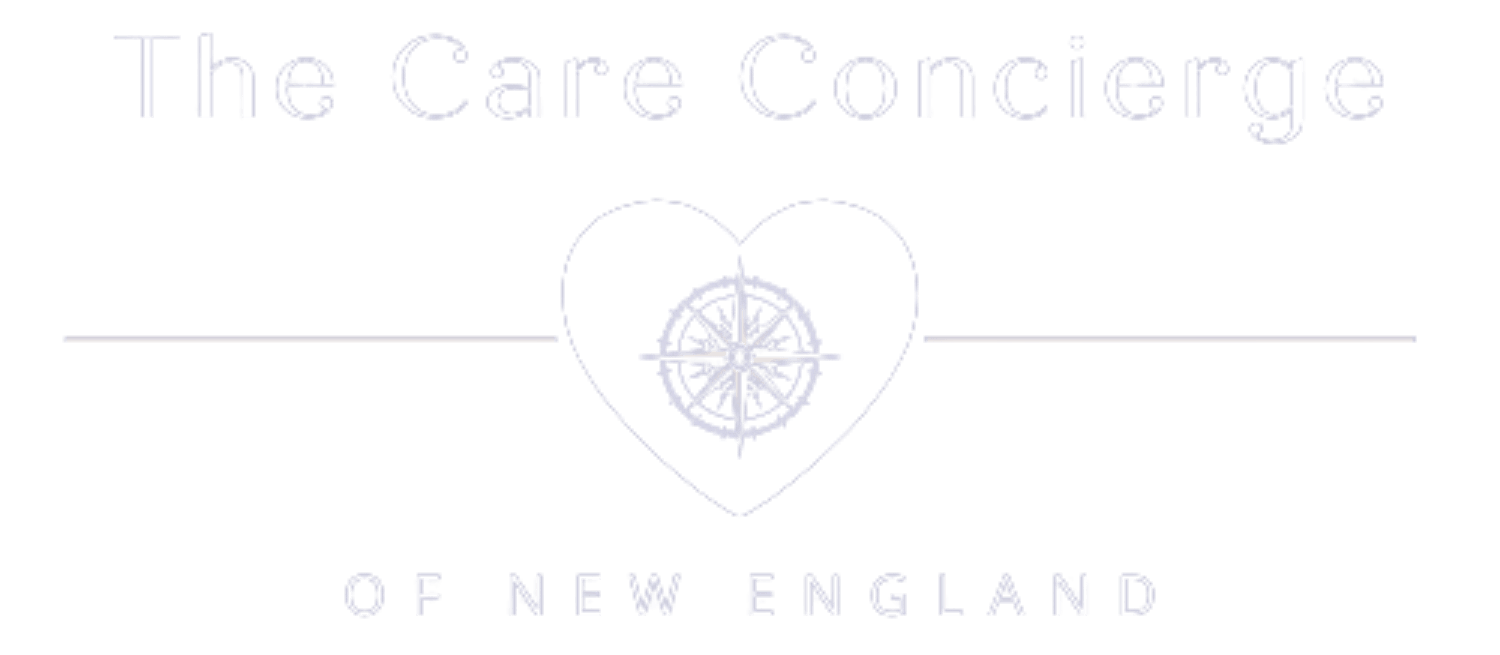
When it's time to explore memory care options for a loved one, being well-informed and prepared significantly impacts the decision-making process. This guide is designed to support families and caregivers through the complex journey of selecting the most suitable memory care facility. It details critical inquiries to pose during visits, including questions about the qualifications of the staff, the specifics of care plans, and the availability of activities designed for those with memory impairments.
Moreover, it emphasizes vital aspects to observe, such as the facility's cleanliness, the general atmosphere, the interactions between staff and residents, and the implemented safety protocols. Our goal is to equip families with a thorough toolkit, enabling them to make decisions with confidence and secure the most compassionate and dignified care for their loved ones as they embark on this new phase of their lives.
Staff Qualifications: Ensuring Expertise in Memory Care Services
Assessing Staff Credentials
When considering an assisted living facility with a memory care unit, the qualifications of the staff are paramount. Family members should inquire about the training and certification requirements for those providing care. It's crucial that personnel not only have a background in medical care but also specialized training in dementia care. This ensures that they possess the knowledge and skills necessary to meet the unique needs of dementia patients effectively.
Staff-to-Resident Ratio
The staff-to-resident ratio in memory care units is an essential factor. A lower ratio means more personalized and attentive care, which is critical for individuals with memory impairments. When visiting memory care communities, ask about this ratio during different times of the day to get a sense of how care is managed around the clock. The right memory care community will prioritize maintaining an optimal staff-to-resident ratio to ensure each resident's needs are adequately met.
Ongoing Training and Support
Most memory care communities are committed to the continuous professional development of their staff. This includes regular training sessions on the latest dementia care techniques and strategies. Families should inquire about the nature and frequency of this training to ensure the staff is up-to-date with the best practices in dementia and memory care.
Understanding the Impact on Memory Care Cost
It's important to note that the level of specialized care and staff qualifications in an assisted living facility's memory care unit can affect the overall memory care cost. While higher costs might indicate a higher quality of care and staff expertise, it's essential for family members to evaluate how these factors align with their financial planning and the specific needs of their loved ones.
By focusing on these areas related to staff qualifications in memory care communities, families can make a more informed decision, ensuring their loved ones receive the highest standard of care tailored to the challenges of living with dementia.
Care Plan Customization: Tailoring Support to Individual Needs

Developing a Comprehensive Care Plan
In assisted living facilities catering to memory care residents, a personalized care plan is a critical element that addresses the unique healthcare needs of those living with Alzheimer's disease or other forms of dementia.
A care plan begins with a thorough assessment conducted by health care providers, closely involving the family member to understand the resident's medical history, capabilities, preferences, and specific needs in the early stage of dementia. This comprehensive approach ensures that as the disease progresses, the care plan can be adjusted to meet the evolving needs of the resident.
Involvement of Multidisciplinary Teams
Crafting a care plan for a resident in a memory care unit involves a multidisciplinary team of health care professionals. This team may include nursing home staff, skilled nursing care experts, doctors, therapists, and dietitians who collaborate to create a holistic plan that covers medical treatments, physical therapy, nutrition, and activities designed for memory care residents. The aim is for each resident to maintain the highest level of independence and quality of life as possible throughout the different stages of dementia.
The Role of Technology and Therapy in Customized Care Plans
To enhance the quality of life for residents in the early stages of dementia and beyond, many memory care units now incorporate technology and various therapeutic interventions into their care plans. This might include the use of memory care applications, music therapy, art therapy, and physical exercise programs tailored to the abilities and interests of the resident. These strategies aim to stimulate cognitive functions, promote physical health, and maintain emotional well-being.
Financial Considerations and Support
Understanding the financial aspects of personalized memory care is essential for families. This includes learning about veterans' benefits, insurance coverage, and out-of-pocket expenses related to assisted living facilities and skilled nursing home care. Family members need to work with the facility's financial advisors to understand how the care plan aligns with financial planning and the available options to ensure sustainable, quality care as the disease progresses.
By emphasizing care plan customization at each phase of dementia, assisted living facilities provide memory care residents with the targeted support they need. This person-centered approach ensures that every individual feels valued, respected, and supported in a community that understands the complexities of living with Alzheimer's disease and similar conditions.
Activity Programs: Stimulating Engagement and Cognitive Function

Activity programs in memory care communities are designed to engage residents and stimulate cognitive functions, offering a blend of enjoyment and therapeutic benefits. These programs are crucial for individuals in early-stage dementia to those requiring more intensive memory care.
Tailored Activities for Various Stages of Dementia
Memory care communities tailor activities to accommodate the varying levels of cognitive ability among residents. This personalized approach ensures that each individual can participate in a meaningful way, whether they reside in assisted living communities, nursing homes, or residential care communities. Activities range from simple puzzle solving to more complex group games, all aimed at stimulating cognitive functions and maintaining or improving quality of life.
The Role of Therapeutic Activities
Therapeutic activities, endorsed by organizations like the Alzheimer's Association, play a significant role in memory care programs. These include art therapy, music sessions, and pet therapy, which have been shown to evoke positive emotions, reduce anxiety, and enhance communication abilities. Such activities contribute significantly to the well-being of individuals living with dementia, creating moments of joy and connection.
Integrating Technology into Memory Care
Advancements in technology have led to innovative approaches to engaging residents of memory care communities. From virtual reality experiences to interactive gaming systems, technology offers unique ways to stimulate cognitive abilities and provide entertainment. These tools can transport residents to different places, times, and experiences, appealing to their senses and memories in ways traditional activities might not.
Social Engagement and Physical Wellness
In addition to cognitive stimulation, activity programs in memory care communities emphasize social engagement and physical wellness. Group activities encourage interaction among residents, promoting a sense of community and reducing feelings of isolation. Physical activities, suitable even for those in a semi-private room or receiving hospice care, support mobility, and overall health, contributing to a better quality of life.
Support from Memory Care Communities
Memory care communities offer comprehensive engagement strategies that encompass a wide range of needs and preferences. Through a blend of individual and group programs, residents receive support tailored to their specific stage of dementia, ensuring that each person’s dignity and quality of life are upheld. These communities are dedicated to providing a nurturing environment where residents can enjoy a meaningful, dynamic lifestyle despite the challenges of memory loss.
Activity programs in memory care facilities not only aim to maintain cognitive and physical abilities but also to enrich the lives of residents through social interaction, creativity, and joy. By focusing on individual needs and preferences, assisted living and memory care communities ensure that residents receive the most beneficial and enjoyable experiences possible.
Safety Measures: Assessing Protocols for Resident Well-Being

Safety Measures in memory care facilities are a top priority to ensure the well-being and security of residents, especially those living with Alzheimer's and similar cognitive conditions. A comprehensive approach to safety can significantly impact the quality of life for individuals in a residential care facility.
Comprehensive Safety Protocols
Memory care facilities offer a secure environment designed to prevent wandering, a common issue among those with dementia. Through controlled access, monitored exits, and secure outdoor spaces, residents can move freely within a safe boundary. Emergency response systems in each room and wearables like bracelets or pendants ensure that help is readily available at the touch of a button.
Staff Training and Emergency Preparedness
A key factor that sets memory care apart from other types of residential care is the specialized training staff receive. This includes understanding the nuances of dementia care, effective communication techniques, and how to respond to emergencies or challenging behaviors calmly and effectively. Regular drills and updates on best practices keep the team prepared for any situation.
Health and Safety Checks
Routine health and safety checks are integral to resident well-being in memory care communities. These assessments help in the early detection of potential health issues and ensure that the living environment remains conducive to residents' needs. From checking smoke detectors to assessing the resident's personal space for fall risks, these measures contribute to a holistic safety approach.
Personalized Care Plans and Risk Assessment
In a memory care setting, personalized care plans consider individual risks, such as susceptibility to falls or wandering. These plans guide the adaptation of living spaces and routines to minimize risks. For instance, a resident prone to wandering may have additional safety measures in place to alert staff if they approach an exit.
Memory Care Compare: Ensuring Standards Meet Expectations
When comparing memory care communities, families should assess how safety protocols and emergency procedures are implemented. The best memory care facilities not only adhere to regulatory standards but also strive to exceed them, ensuring that the environment is not just secure but also nurturing and respectful of residents' independence.
By prioritizing these safety measures, memory care communities reinforce their dedication to the protection and well-being of their residents. Families can find comfort in knowing that their loved ones reside in an environment where safety is integrated into every aspect of care, reflecting a commitment to excellence in dementia support services.
Cleanliness Standards: Evaluating Hygiene Practices and Environment

Cleanliness Standards in Memory Care Facilities
In memory care communities, maintaining high cleanliness standards is crucial for ensuring the health and well-being of residents, particularly those living with Alzheimer's and other dementias.
A few key factors contribute to the overall hygiene practices and environment in these facilities, including the layout that promotes a structured environment, the use of safety features to prevent accidents, and the staff who are specially trained to assist with personal care and cognitive impairment.
Factors Influencing Cleanliness and Hygiene
Memory care facilities focus on creating a clean and safe environment that supports the everyday activities of residents. This includes regular sanitation of common areas, personal living spaces, and areas where medical appointments or brain games happen to promote cognitive engagement. The National Investment Center and National Institute for Standards in Memory Care covered areas that aim to ensure facilities provide the same services families would expect from family caregivers at home.
Personal Care and Hygiene Practices
Staff members in memory care communities are specially trained to assist residents with personal care needs in a dignified and respectful manner. This includes daily routines such as bathing, grooming, and ensuring that residents' clothes are clean and comfortable. Such meticulous attention to personal hygiene is critical for minimizing the risk of infections and maintaining the overall health of individuals with cognitive impairments.
Structured Environment for Enhanced Cleanliness
The design of memory care facilities typically includes structured environments that are easy to navigate and maintain. These environments are equipped with safety features to minimize risks associated with dementia-related behaviors. Cleanliness and hygiene are integrated into the design, with non-slip floors, easy-to-clean surfaces, and ample natural lighting to promote a healthy living environment.
The Role of Family and Community in Maintaining Standards
Family caregivers and memory care communities often work together to ensure that the cleanliness and hygiene standards meet or exceed expectations. Regular updates from the facility to the families about their loved one's care and the environment they live in play a crucial role in maintaining trust and peace of mind. Families pay close attention to the care provided, which includes the cleanliness of the facility and the personal hygiene of residents.
By prioritizing cleanliness and providing a safe, structured environment with specially trained staff, memory care facilities demonstrate their commitment to the well-being of individuals with Alzheimer's and other dementias. These standards not only support the physical health of residents but also contribute to a dignified and respectful atmosphere in which they can thrive.
Resident Interaction: Observing Staff-Resident Relationships

The quality of interactions between staff and residents in a memory care community significantly impacts the overall care and well-being of those living with memory impairment. Observing these interactions provides insights into how well the community adheres to the principles of dignity, respect, and personal attention in the care of individuals with dementia.
Creating a Supportive Physical Environment
Memory care facilities are designed to offer a safe and supportive physical environment that encourages independence while ensuring safety. This includes secure outdoor spaces for residents to enjoy fresh air and activity without the risk of wandering off. The layout of these facilities is often straightforward to help minimize confusion and anxiety among residents.
Keeping Families Informed
Families play a crucial role in the ongoing care of residents with memory impairments. The best memory care communities maintain open lines of communication with families, keeping them informed about their loved ones' health, behavioral changes, and overall well-being. This collaboration between the facility and families ensures a continuum of care and support that extends beyond the confines of the community.
Comprehensive Care Services
Meal Services and Adequate Nutrition
Memory care communities provide meal services designed to meet the nutritional needs of residents, ensuring they receive adequate nutrition. Special dietary needs are accommodated, and meals are often used as opportunities for social interaction and engagement among residents.
Adult Day Centers and Social Interaction
Some communities may offer access to adult day centers or structured social activities that promote interaction and engagement among residents. These programs are essential for maintaining cognitive skills and emotional well-being.
Managing Medication and Health Care
Staff in memory care facilities are trained in managing medication and coordinating with healthcare providers to address the medical needs of residents. This includes regular health check-ups, speech therapy for communication issues, and behavior management strategies for those displaying challenging behaviors due to their memory impairment.
Federal Government Regulations and Standards
Memory care communities operate under strict regulations set forth by the federal government and state agencies, ensuring that seniors' housing meets the highest standards of care and safety. These regulations cover everything from the physical environment to staff training and emergency procedures.
Importance of Behavior Management
Effective behavior management is crucial in memory care settings, where residents may exhibit challenging behaviors due to their condition. Staff are trained in non-pharmacological strategies to manage such behaviors, emphasizing patience, understanding, and personalized approaches to care.
The relationships between staff and residents in memory care communities are foundational to the quality of life and care provided to individuals with memory impairment. Through dedicated care, informed communication with families, and adherence to high standards of service and safety, these communities play a vital role in supporting seniors with dementia in a respectful and dignified manner.
Contact The Care Concierge of New England Today

If you or a loved one are navigating the complexities of memory care, don’t go it alone.The Care Concierge of New England offers a guiding hand through the maze of decisions and considerations, ensuring you find the best care suited to your unique needs.
Contact us today to learn how we can assist you in creating a supportive, dignified, and respectful care plan for your loved ones with memory impairments. Our team is ready to provide the resources, support, and guidance you need for peace of mind.
OPENING HOURS
- Mon - Fri
- Open 24 Hours
- Sat - Sun
- Appointment Only
©2021 by The Care Concierge of New England. Web Services by
LevelUP Digital Solutions
The Care Concierge of New England LLC
9 Oaklawn Rd
North Smithfield, RI 02896

